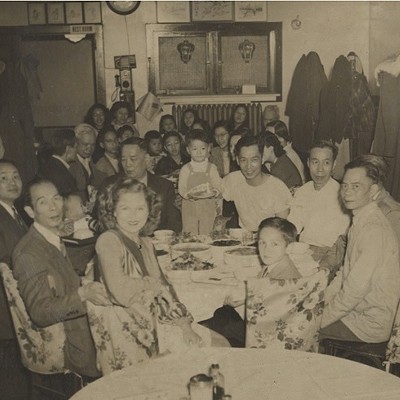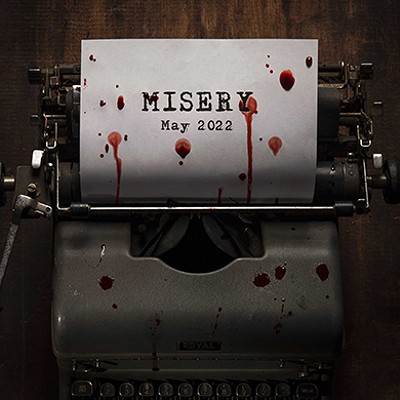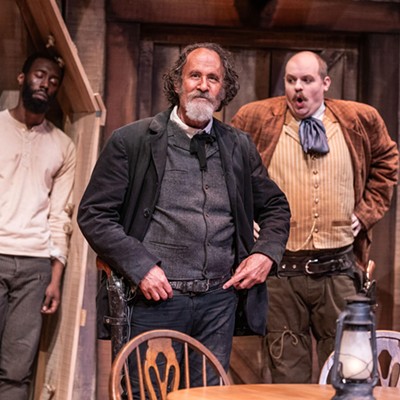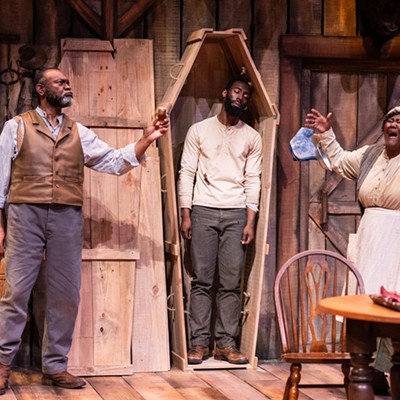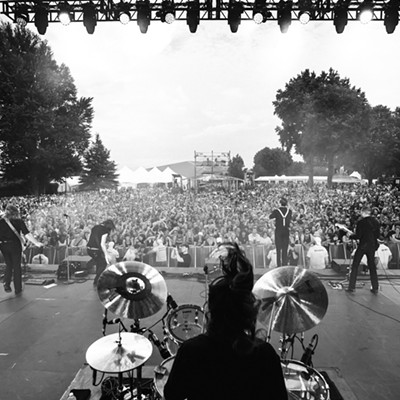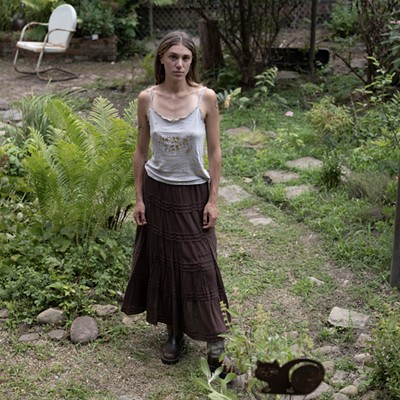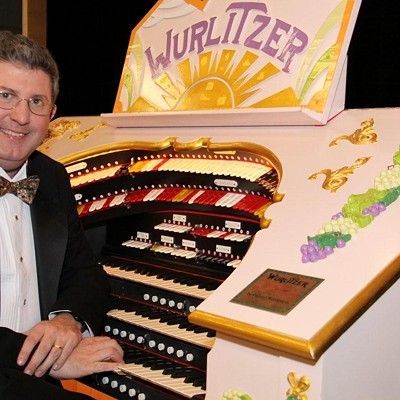
“Honor” might seem a concept antique — 19th century at best. But honor is the subject of John Pollono’s crackling new play Rules of Seconds, receiving its Pittsburgh premiere at barebones productions. The dark comedy is set in 1855 Boston, where dueling is outlawed but men routinely duel anyway because, according to the 18th-century Irish dueling code, a “gentleman” lives by honor, and “Honor can only be restored by the spilling of blood.”
Honor can be lost, however, over the most minor offense. So when shipping magnate Walter Brown is accidentally slighted during a business deal, he challenges young milquetoast Nathaniel Leeds to a duel. The overmatched Nathaniel recruits his estranged, more worldly younger brother, James, as his “second,” or cornerman. The story unspools the pasts, futures and fortitudes of characters also including the brothers’ widowed mother, Martha.
For quick wit, sudden violence and full-throated profanity, Pollono (who also wrote barebones’ previous show, Small Engine Repair) here recalls Irish playwright Martin McDonagh (The Lieutenant of Inishmore), with a similar knack for pivoting instantly from comedy to grimmer terrain. On the small stage of barebones’ newly renovated black-box theater, Melissa Martin adroitly directs a strong cast of 10 including Connor McCanlus as Nathaniel (“I simply don’t understand how one spills tea on honor”); barebones artistic director Patrick Jordan as James (“Tomorrow you’re going to put a hole in that son of a bitch like a gentleman”); and, in three supporting roles, Los Angeles-based Jack Erdie (a former Pittsburgher who starred in Netflix’ Mindhunter).
Rightly, though, the focus is ultimately on two actors. Cotter Smith, a newly Pittsburgh-based veteran of Broadway and Hollywood, is deeply unsettling as a man willing to kill over a pair of boots. (A very nice pair, but still.) And it’s a welcome return to local stages for Robin Walsh, who convincingly makes Martha a matriarch to be reckoned with, one with enough insight to observe, “One must always question a system whose architects are its primary beneficiaries.”
Such male pathology as dueling might seem an easy target for mockery. But by pulling the veil of civility from self-justifying butchery — well as from the accompanying sexism, racism and classism — Pollono shows that his commentary remains tragically relevant.


